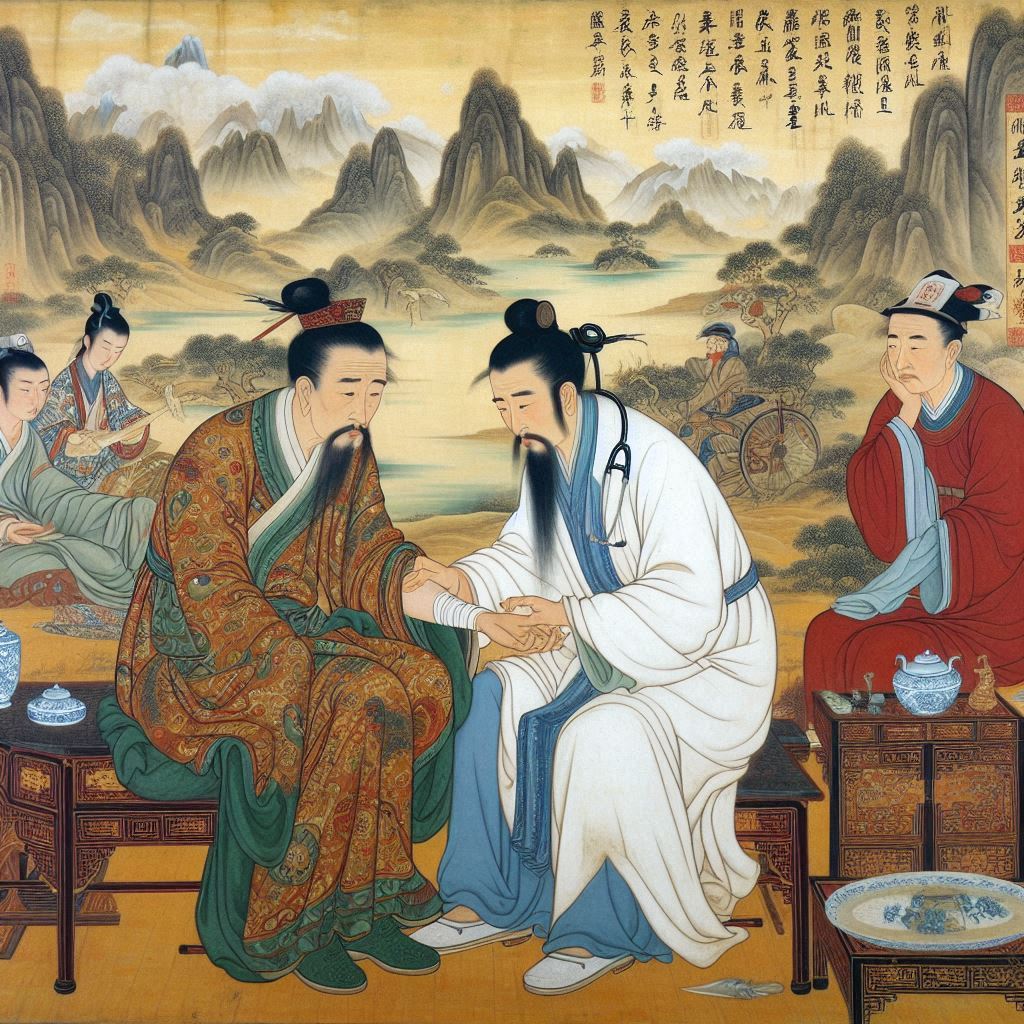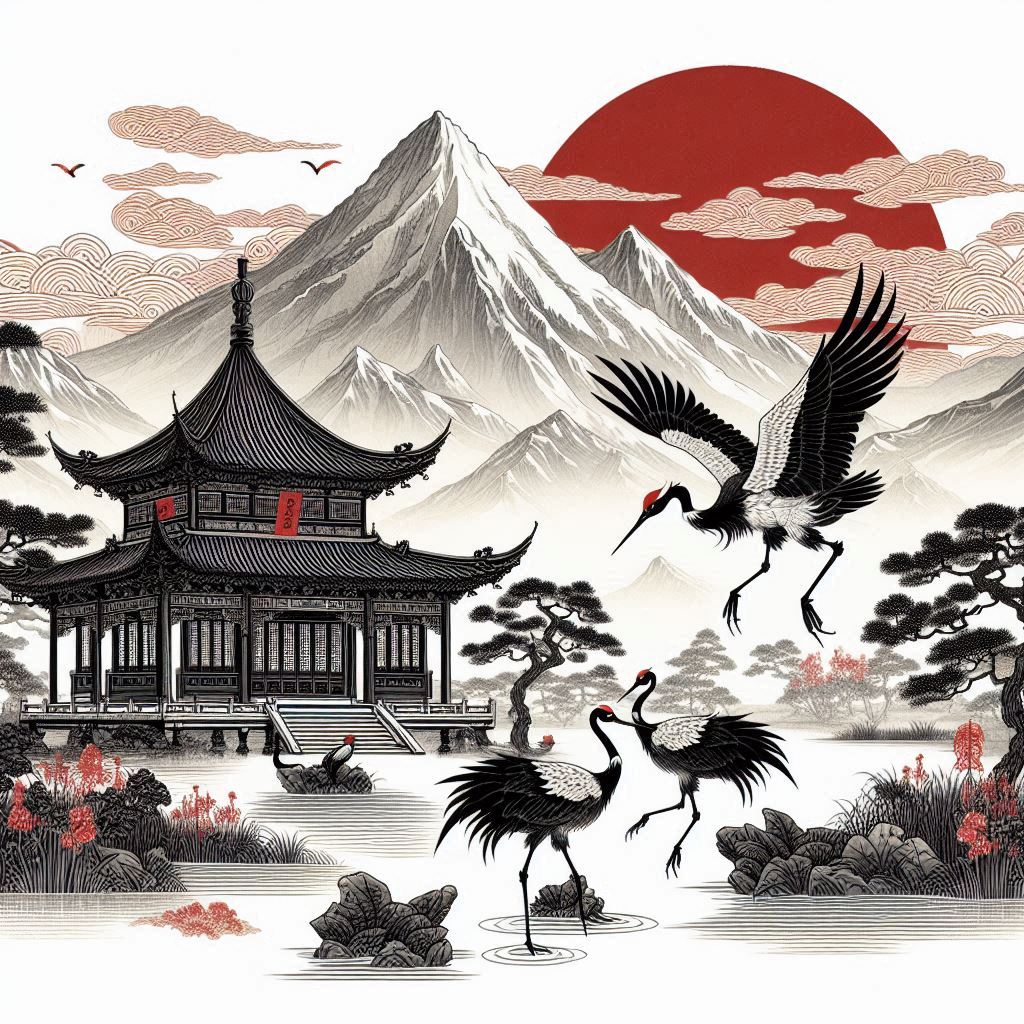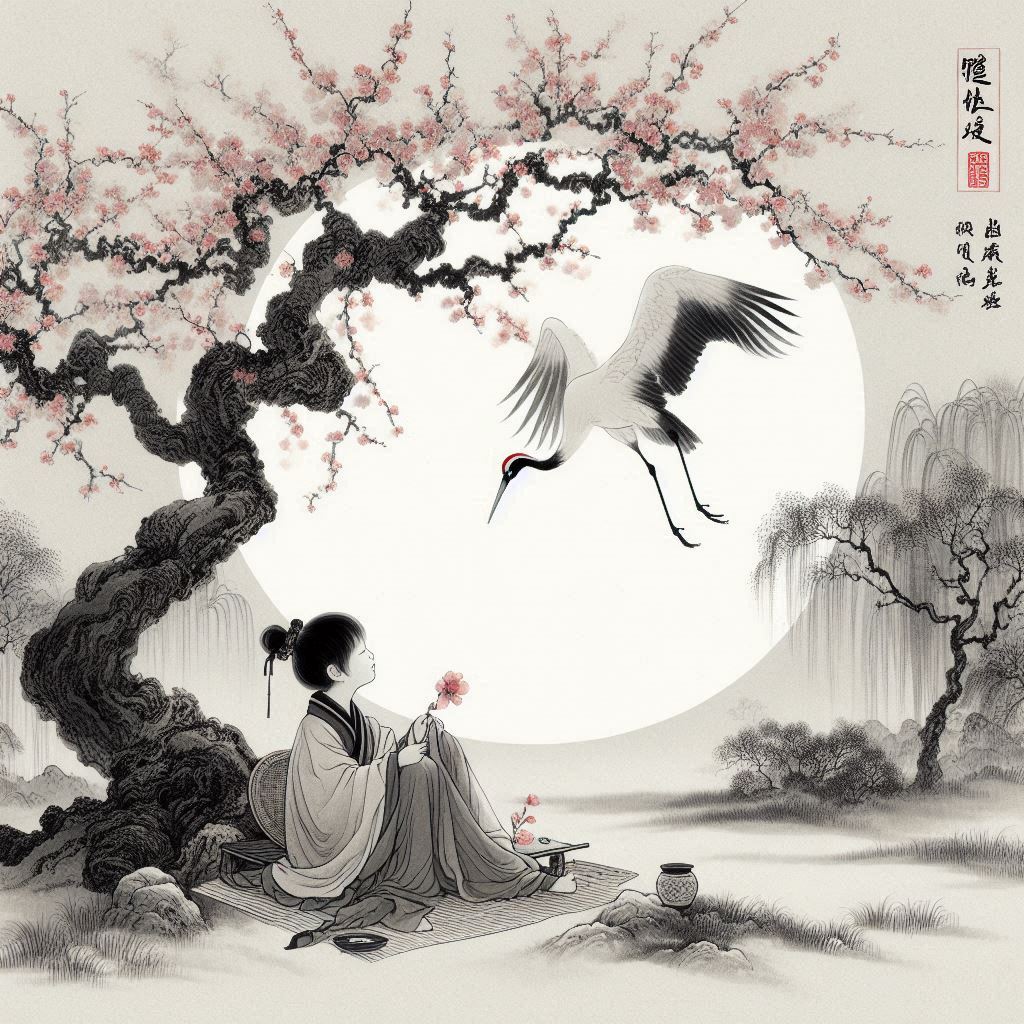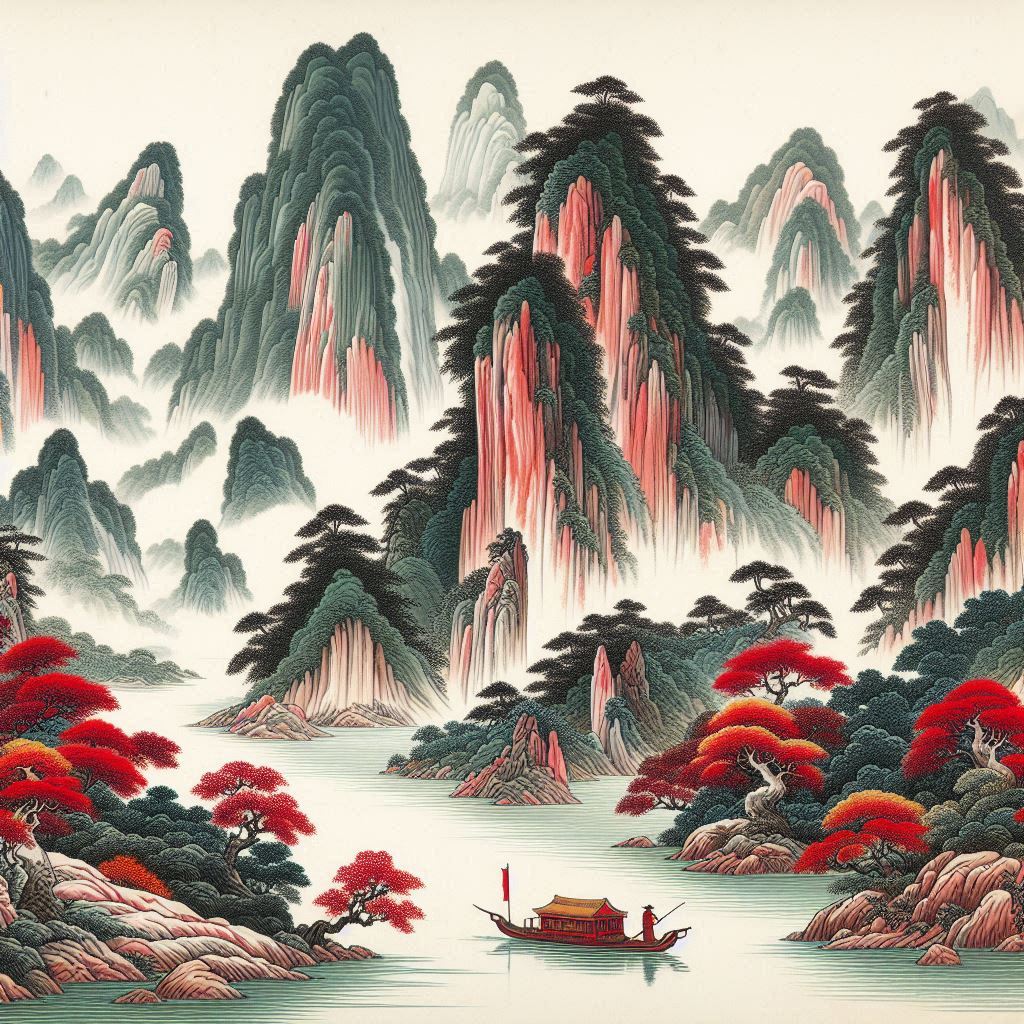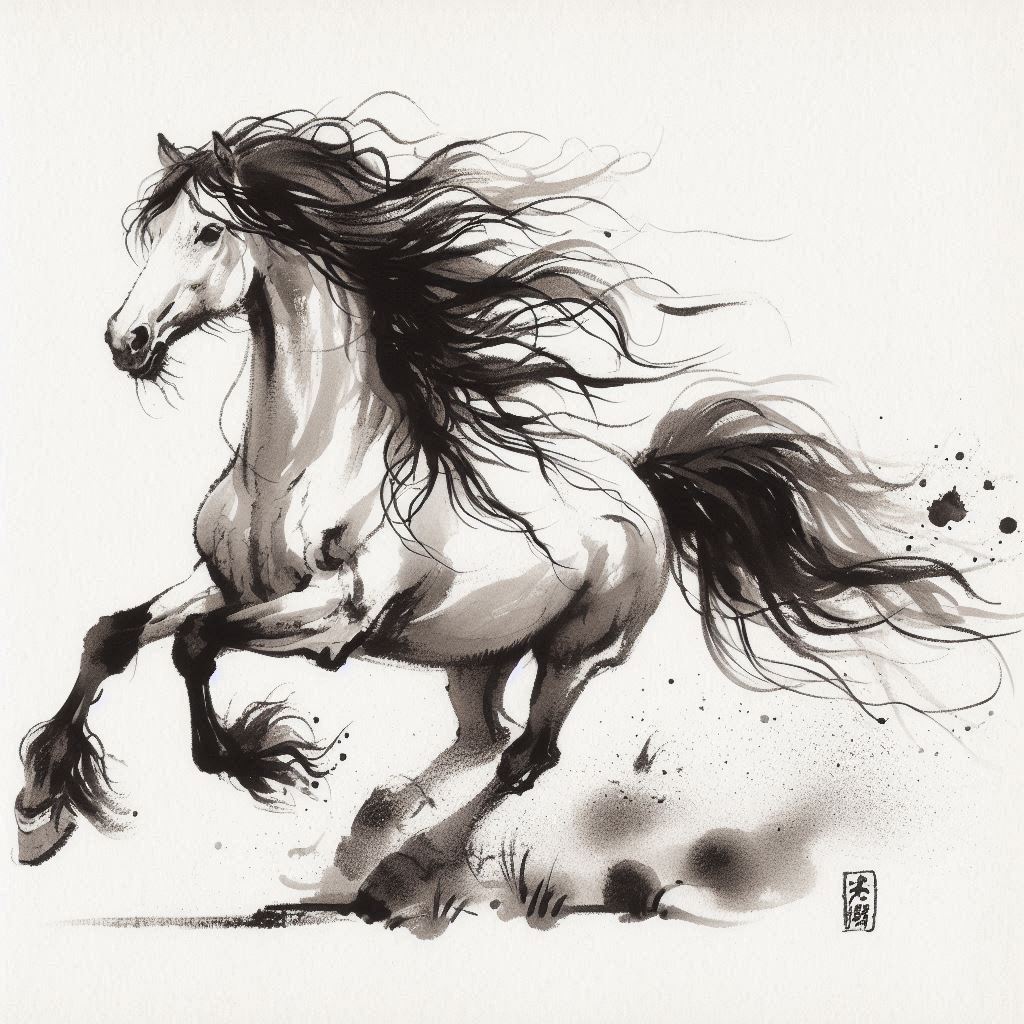In traditional Chinese medicine the Lung is viewed as the intermediary organ between our body and the outside world(1). It is called "a delicate organ", vulnerable to attack of external influences(1)(2). External pathogens such as viruses and bacteria as well as climatic factors such as wind, damp, dryness, hot, and cold are first met by the Lung. Because the Lung is delicate and vulnerable on one hand, yet shields the body from external pathogens on the other, some TCM teachers beautifully call it "the umbrella organ".
The Lung governs the respiration(1)(2)(3)(4). Through the Lung we inhale “pure Qi” and exhale “dirty Qi”(1)(3). The pure Qi is then mixed with the Qi extracted from the food, to derive/to gather in the chest and form the so called Zong Qi (translated as "pectoral" or "gathering Qi")(1)(2)(3). The Lung is also in charge of dispersing the so called Wei Qi (translated as "defensive" or "protective" Qi) to the space between the skin and the muscles, in order to warm the body and protect it from exterior pathogens(1). In this way, the Lung both gathers and disperses Qi.
Beside governing the Qi and the respiration, the Lung together with the Spleen and the Kidneys(1), is also in charge of the body's water metabolism(2)(3). The Lung receives refined fluids from the Spleen and distributes/disperses them to the body’s hair, skin(1)(2)(3)(4) and mucus membranes(5). Creating a protective coating of the mucus membranes is essential for protecting the body from external pathogens. This Lung function of moistening the muscles, the skin and the coating of the mucus membranes (together with the dispersing of the above mentioned Defensive Qi) is crucial for the state of a person’s overall immunity. If these Lung functions are weak one will be prone to frequent colds and have either dryness or excess mucus. As the Lung opens into the nose such disharmony will manifest in nasal congestion(1)(2)(3), sinus problems, and all types of Lung and bronchial conditions. As the Lung controls the skin this disharmony will manifest in dry, rough or dull skin(5). On the other hand people with healthy Lungs have strong immunity and radiant skin.
Since the Lung is the uppermost organ in the torso the Qi of the Lung needs to constantly flow downwards(1). Thus beside a dispersing function the Lung has also a descending function(1)(2)(3)(4). A symptom of Lung Qi not flowing downward is cough(1)(2)(3)(4). The downward flow of Lung Qi is also essential for the Lung's partnership with the Large Intestine - it aids the Large Intestine in moving out the waste. An imbalance in this healthy function may result in constipation(1).
On a mental/emotional level the emotions associated with the Lung are grief and sadness(5). A long-time unresolved or repressed grief contracts the Lung, interfering with its function to disperse Qi, nutrients and water mist throughout the body. Thus the Lung becomes congested with undistributed material, while the body remains undernourished(5).
Since the Lung is responsible for unifying and dispersing of Qi, the emotional equivalent of this healthy physical function would be gathering and letting go. People with healthy Lungs are unified, centered and effective at what they do but also have the ability to let go of everything that is unpractical and needless. On the other hand people with weak Lungs have difficulty letting go and tend to have strong attachments(5).
YS
(1) Maciocia, Giovanni (1989). The Foundations of Chinese Medicine. Edinburgh: Harcourt Publishers Limited
(2) Zhang, Enqin (1990). Basic Theory of Traditional Chinese Medicine. Shanghai: Publishing House of Shanghai College of Traditional Chinese Medicine
(3) Deng Liangye, Gan Yijun, He Shuhui, Ji Xiaoping, Li Yang, Wang Rufen, Wang Wenjing, Wang Xuetai, Xu Hengze, Xue Xuiling, Yuan Jiuling (1987). Chinese Acupuncture and Moxibustion. China: Foreign Languages Press
(4) Yang Weiyi, Meng Fanyi, Jiang Yuanan(2002). Diagnostics of Traditional Chinese Medicine. Beijing: Beijing University of Chinese Medicine and Pharmacology
(5) Pitchford, Paul (2002). Healing with Whole Foods. Berkeley: North Atlantic Books
Related Articles
The Lung, season autumn, and the foods during autumn that benefit the Lung
Herbs for first stage wind attack
Herbs for second stage wind attack
Herbs that relieve coughing and wheezing
Herbs that transform cold-phlegm and hot-phlegm
Please read our Disclaimer

